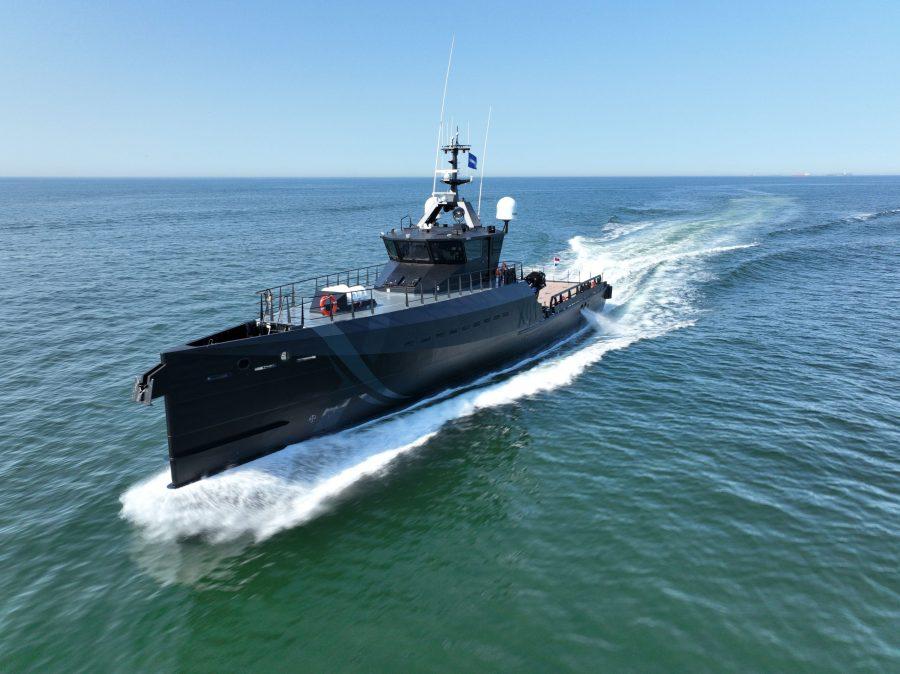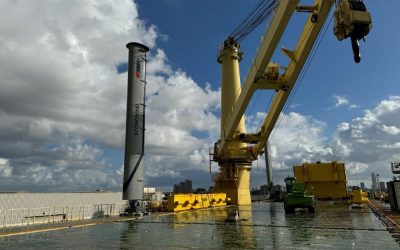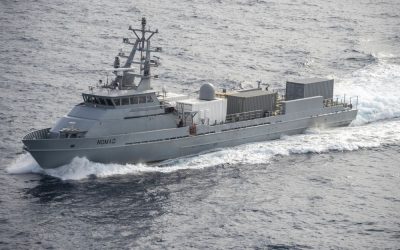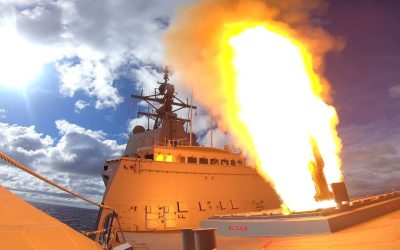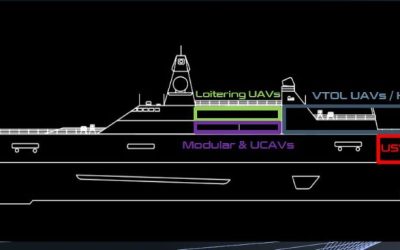The Royal Navy has teamed up with Imperial College London to test a cutting-edge navigation system that could revolutionise warship navigation and is using the prototype of a ‘quantum sensor’ developed by academics at Imperial College London on its experimentation and trials ship Patrick Blackett.
According to the Royal Navy, the technology has the potential in the future to provide GPS-free navigation, making it less susceptible to jamming, imitation or other sabotage. Experiments being undertaken on Patrick Blackett are the first step towards understanding the application and exploitation of quantum-enabled navigation, which could provide significant navigational advantages when operating in satellite-denied areas.
Many navigation systems today rely on global navigation satellite systems (GNSS), such as GPS, which uses signals from satellites orbiting the Earth. However, GPS navigation is not always accessible, obstacles like tall buildings can easily block the satellite signals, and they are also susceptible to jamming, imitation, or denial, thereby preventing accurate navigation. It has been estimated that a single day of satellite service denial would incur a cost of £1 billion to the UK.
The partnership between NavyX, the navy’s technology and experimentation experts, and Imperial College London is in early stages but is described as “a big step forward.” Commander Michael Hutchinson, Commanding Officer of Patrick Blackett said, “Working with Imperial College London on this project has been an exciting and interesting opportunity for all of us. So far, the testing has gone well but the technology is still in its very early stages. It’s great to be a part of Royal Navy history.”
Conventional accelerometers are used in many different devices such as mobile phones and laptops. However, these sensors cannot maintain their accuracy over longer periods of time without external reference. Self-contained satellite-free navigation systems exist, but current technologies ‘drift’ over time, meaning they lose accuracy unless regularly calibrated with satellites. The quantum sensor has the potential to remove this drift, significantly improving the accuracy over long timescales.
While many navigation systems rely on global satellite systems, such as GPS, which use signals from satellites orbiting the earth, the quantum sensor is a new type of accelerometer which measures how an object’s speed changes over time. By combining this information with rotation measurements and the initial position of the object, the current location can be calculated.
When cooled to extremely low temperatures the atoms start to display their ‘quantum’ nature, resulting in wave-like properties. As the atoms move through the sensor, an ‘optical ruler’ is formed by using a series of laser pulses. This allows the acceleration of the atoms to be precisely measured.
The experiment by Imperial College London and the Royal Navy is the first step towards understanding the application and use of quantum-enabled navigation in areas which have poor or no satellite coverage.
